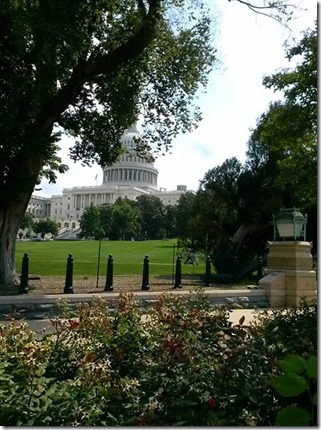By RONNIE ELLIS CNHI News Service
FRANKFORT — A University of Kentucky study concludes there is a growing but relatively small market for hemp which could offer some farmers an opportunity to grow a niche product.
But Agriculture Commissioner James Comer, hemp’s biggest booster in Kentucky, says the crop’s potential is greater if it can be produced to manufacture interior automobile components.
The study was commissioned by the Kentucky Hemp Commission on which Comer is a member after passage of legislation sponsored by Republican Sen. Paul Hornback, a Shelby County farmer, in the 2013 General Assembly.
Senate Bill 50 provides a regulatory framework for hemp cultivation if the federal government lifts its ban. (Hemp is a biological cousin of marijuana but contains much lower levels of THC, the chemical which produces the marijuana smoker’s high).
SB 50 was opposed by law enforcement agencies and Gov. Steve Beshear, fearing cultivation will complicate marijuana enforcement and eradication efforts. After the House, which originally opposed the bill passed it on the last day of the session, Beshear allowed it to become law without his signature.
About 30 countries, including Canada, European countries and China, the largest producer and user of hemp, grow it. Increasingly, domestic importers of legal hemp products have called for an end to the federal ban.
Comer and Hornback say it would offer farmers an alternative crop and make Kentucky a leader in a growing market.
“Realistically, I think it may be another option for some farmers but it’s not going to be a major agricultural panacea,” said Dr. Leigh Maynard, chairman of the UK Department of Agricultural Economics which conducted the study.
Maynard said the study indicates hemp grown for pressing into oil used in food and cosmetics might be as profitable as corn under ideal conditions, with both yielding about $200 to $300 per acre. But presently, Maynard said, there isn’t much potential for growing hemp for fiber products.
“It does not appear that anticipated hemp returns will be large enough to entice Kentucky grain growers to shift out of grain production,” the study says, “except at the highest assumed prices for a hemp seed only enterprise.”
But it goes on to say lower grain prices or higher than expected hemp yields or prices would alter that equation. It also says hemp is subject to “price volatility” as well as market manipulation by the world’s dominant producer, China.
Comer said he isn’t discouraged by the conclusions.
“It’s about what I expected,” said Comer. “There’s just nothing out there to compare it to in trying to determine a market.”
Comer said had similar studies been conducted on the potential of soybeans 15 or 20 years ago, “they would never have predicted where soybean prices are today.”
He sees opportunity in using hemp fiber to manufacture automobile interior components, stronger and lighter than plastic and recyclable. He said Mercedes and BMW are already using hemp products for interior dashboards and door panels and it could be boon in Kentucky which has three major auto manufacturers and many parts suppliers.
If a hemp processing facility were to locate in Kentucky to supply auto manufacturers, Comer said, “The sky is the limit.”
House Agriculture Committee Chairman Tom McKee, a Harrison County farmer who is also on the Hemp Commission, originally held up Hornback’s bill in committee at the direction of House leadership but eventually voted for it. He had not seen the UK report.
“I’ll be anxious to look at it,” McKee said, “but I still think a research component is needed. I hope there is a potential market, but I don’t want farmers taking a chance on something that might not work out.”
Maynard said hemp represents “another tool in (farmers’) toolboxes,” a crop which might be sold to a niche market.
He said Kentucky possesses two of three critical components needed for a successful hemp market: it has farmers and a market, which though small is growing. But it lacks the “first line processors” which could buy from farmers and then sell to those who produce consumer products.
Even if a processing facility is located in Kentucky, Maynard said, it probably won’t produce a lot of jobs, perhaps 25 to 50.
He also said Kentucky will face competition if the federal ban is lifted, not only from Canada, but from eight other states which have passed legislation similar to Kentucky’s.
Maynard said Kentucky, which was the dominant U.S. hemp producer in the 1830s and 1840s, offers promising conditions to grow hemp, but it needs first to develop seed varieties which will prosper here.
RONNIE ELLIS writes for CNHI News Service and is based in Frankfort. Reach him at [email protected]. Follow CNHI News Service stories on Twitter at www.twitter.com/cnhifrankfort.






